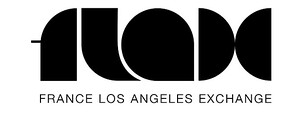The House of Dust at the Schindler House
February 9–June 2, 2019
at the Schindler House
835 North Kings Road
West Hollywood, CA 90069
United States
This exhibition springs from The House of Dust, a seminal yet under-recognized late 1960s work by Fluxus artist Alison Knowles. Originally called The Play House, this intermedia piece serves as an entry point into contemporary investigation of the relationships between architecture, technology, and performance. In a text titled Shelter or Playground, Rudolf Schindler described his house as a “Playground” that “grows with its inhabitants” and where “life will regain its fluidity.” Today, the house open its doors to contemporary artists who have been invited to produce site-specific works, responding to both architectures by Schindler and Knowles and translating them into multiple performative forms.
Curated by Maud Jacquin, Anna Milone and Sébastien Pluot, this group exhibition is the result of a collective research effort initiated by Art by Translation (TALM Angers & École nationale supérieure d’arts de Paris-Cergy) with the MAK Center for Art and Architecture and France Los Angeles Exchange (FLAX), in collaboration with the California Institute of the Arts (CalArts).
The presentation commissions new works and performances by Henry Andersen & Bryana Fritz/Slow Reading Club (Australia, USA), Lila Athanasiadou (Netherlands), Jasmin Blasco (France/USA), Dimitri Chamblas (France), François Dallegret and François Perrin (France), Milka Djordjevich (USA), Rafa Esparza (USA), Daniel Frota (Brazil), Mark Geffriaud (France), Gerard & Kelly (USA), FLAX Artist-in-Residence Aurélie Godard (France), Jeff Guess (France), Simon Leung (USA) and Luke Stoneham (UK), Lucky Dragons (USA). It will be accompanied by interpretations of scores by Fluxus artists or those associated with Fluxus—Alison Knowles, Yoko Ono, Alvin Lucier, Pauline Oliveros—interpreted by CalArts students and by historical performances including works by Merce Cunningham and Trisha Brown on the Calarts Nomad Floor. The floor will play the role of a contemporary House of Dust as a studio, gathering place, gallery, blank slate, habitat and point of discussion about context, performing and witnessing performance, open to anyone upon registration to the MAK Center.
In 1967, Alison Knowles’s The House of Dust started as one of the first computer-generated poems. Each quatrain began with “A House of …” followed by random sequences of materials, sites or locations, light sources, and categories of inhabitants. In 1969, Knowles translated one of the quatrains into an architectural structure with organic, “non-Euclidean” shapes that, at the time, were in contrast with the technological origin of the poem. The house was first installed in Chelsea, New York, and then moved to CalArts, where a burgeoning community of artists and students created a number of artistic works in response to the structure (installations, performances, dance, concerts, poetry classes, etc.). The physical House thus became an open structure, a platform used to generate and shelter experimental activities. It got lost in the 1980s and the only remaining aspect of the work was the poem that has been reconstituted and open to new interpretations.
At the core of this exhibition is the desire to reactivate the generative potential of Knowles’s work and catalyze interrogations of wider aesthetic and social issues through several disciplines, creating new forms and communities. This exhibition organizes the encounter between The House of Dust and the Schindler House, two very singular architectures that coincides on numerous dimensions. They both represent alternatives to functionalist architecture and conventional behavior. They reverse the modernist idea according to which architecture should organize and control human conduct.
About France Los Angeles Exchange (FLAX)
FLAX promotes mutual understanding between the diverse communities of Southern California and France through the arts. A California-based 501(c)(3) public charity FLAX is committed to collaboration, innovation, exchange, and sustainable impact. FLAX’s program offers Southern California artists and organizational partners reciprocal and collaborative opportunities with artists, curators, and cultural institutions based in France. FLAX has a strong commitment to public engagement, introducing large scale art projects in col- laboration with established cultural institutions.



